| Monday,
June 5, 2017 |
| 8:00-19:00 |
Registration |
| 8:30-9:00 |
Auditorium |
Workshops Opening
[session co-chairs: Irene Garrigos and
Manuel Wimmer] |
| 9:00-10:30 |
Auditorium |
Liquid Multi-Device Software: 2nd
International Workshop on Liquid Multi-Device Software
jointly with
EnWoT: 1st International Workshop on
Engineering the Web of Things
| 09:00 - 10:30: |
Keynote speech
.
|
|
| Room 1 |
practi-O-web: International Workshop on
The Practice Of The Open Web
| 09:00 - 09:20: |
Roberto Rodriguez-Echeverria, Javier Luis Cánovas
Izquierdo and Jordi Cabot.
Towards a UML and IFML mapping to
GraphQL |
| 09:20 - 09:40: |
Monica Scannapieco, Raffaella Aracri, Roberta
Radini and Laura Tosco.
Using Ontologies for Official
Statistics: the Istat Experience |
| 09:40 - 10:00: |
Lalit Sanagavarapu, Sourav Sarangi and Y. Raghu
Reddy.
ABC Algorithm for URL Extraction
|
| 10:00 - 10:20: |
Simone Porreca, Francesco Leotta, Massimo
Mecella, Stavros Vassos and Tiziana Catarci .
Accessing Government Open Data
through Chatbots |
|
| Room 2 |
NLPIT - 3rd International Workshop on
Natural Language Processing for Informal Text
| 09:00 - 09:05: |
Introduction |
| 09:05 - 10:00: |
Keynote speech:
Roberto Navigli.
Overcoming the Language Barrier
with BabelNet and Multilingual Disambiguation of Text
|
| 10:00 - 10:30: |
Hamdy Mubarak.
Analysis and Quantitative Study of
Egyptian Dialect On Twitter |
|
| 10:30-11:00 |
Atrium
|
Coffee
Break |
| 11:00-12:30 |
Auditorium |
Liquid Multi-Device Software: 2nd
International Workshop on Liquid Multi-Device Software
jointly with
EnWoT: 1st International Workshop on
Engineering the Web of Things
|
Antti Luoto and Kari Systä.
IoT Application Deployment Using
Request-response Pattern with MQTT |
|
Miika Kalske, Niko Mäkitalo and Tommi Mikkonen.
Challenges when Moving from
Monolith to Microservice Architecture |
|
Carmelo Ardito, Giuseppe Desolda and Maristella
Matera.
Engineering Task Automation Systems
for Domain Specificity |
|
| Room 1 |
practi-O-web: International Workshop on
The Practice Of The Open Web
| 11:00 - 11:45 |
Keynote speech:
Domenico Fabio Savo.
|
| 11:45 - 12:00 |
Discussion |
| 12:00 - 12:20 |
Giulio Ganino, Domenico Lembo and Federico
Scafoglieri.
Ontology Population from Raw Text
Corpus for Open-Source Intelligence |
|
| Room 2 |
NLPIT - 3rd International Workshop on
Natural Language Processing for Informal Text
| 11:30 - 12:00 |
Diego Esteves, Rafael Peres and Jens Lehmann.
Named Entity Recognition in Twitter
using Images and Text |
| 12:00 - 12:30 |
Jonathan Wintrode, Nhat Bui, Jan Stepinski and
Chris Reed.
Online Expectation Maximization for
Language Characterization of Streaming Text |
| 12:30 - 12:40 |
Wrap Up and Closing |
|
| 12:30-13:30 |
Gallery
|
Lunch |
| 13:30-15:00 |
Auditorium |
Liquid Multi-Device Software: 2nd
International Workshop on Liquid Multi-Device Software
jointly with
EnWoT: 1st International Workshop on
Engineering the Web of Things
|
Francesco Nocera and Angelo Parchitelli.
An adaptive model for Semantic
Complex Event Processing-driven Social Internet of
Things Network |
|
Maurizio Leotta, Filippo Ricca, Diego Clerissi,
Davide Ancona, Giorgio Delzanno, Marina Ribaudo and
Luca Franceschini.
Towards an Acceptance Testing
Approach for Internet of Things Systems |
|
Fernando Serena, María Poveda-Villalón and Raúl
García-Castro.
Semantic Discovery in the Web of
Things |
|
Francesco Bruni, Pomo Claudio and Gaetano Murgolo.
Back-End Data sharing pattern
applied to a real world scenario [Demo Paper]
|
|
| Room 1 |
SoWeMine - 3rd International Workshop on
Mining the Social Web
|
Spiros Sirmakessis.
Mining the Social Web: Introduction
to Workshop Activities |
|
Evanthia Faliagka, Kostas Ramantas, Maria Rigou and
Spiros Sirmakessis.
Measuring personal branding in
Social Media: Towards an Influence Indication score
|
|
Andrea Caielli, Marco Brambilla, Stefano Ceri and
Florian Daniel.
Harvesting Knowledge from Social
Networks: Extracting Typed Relationships among
Entities |
|
Enaitz Ezpeleta, Inaki Garitano, Ignacio
Arenaza-Nuno, Urko Zurutuza and Jose Maria Gomez
Hidalgo.
Novel Comment Spam Filtering Method
on Youtube: Sentiment Analysis and Personality
Recognition |
|
| 15:00-15:30 |
Atrium
|
Coffee
Break |
| 15:30-17:00 |
Auditorium |
Liquid Multi-Device Software: 2nd
International Workshop on Liquid Multi-Device Software
jointly with
EnWoT: 1st International Workshop on
Engineering the Web of Things
|
Sivamani Tnangavel and Kari Systä.
Liquid Transfer of User Identity
|
|
Valerio Francesco Annese, Giovanni Mezzina and
Daniela De Venuto.
Wireless Brain-Computer Interface
for Wheelchair Control by Using Fast Machine Learning
and Real-Time Hyper-Dimensional Classification |
|
Jyri Lehvä, Niko Mäkitalo and Tommi Mikkonen.
Case Study: Building a Serverless
Messenger Chatbot |
|
Paolo Buono, Fabio Cassano, Alessandra Legretto
and Antonio Piccinno.
A Homemade Pill Dispenser Prototype
Supporting Elderly [Demo Paper] |
|
| Room 1 |
SoWeMine - 3rd International Workshop on
Mining the Social Web
|
Fabio Calefato, Giuseppe Iaffaldano, Filippo
Lanubile, Antonio Lategano and Nicole Novielli.
Mining Communication Data in a
Music Community: A Preliminary Analysis |
|
Brigitte Juanals and Jean-Luc Minel.
Analyzing Museums and Key
Influential Users on Twitter during the 'European
Night of Museums 2016' |
|
Open Discussion and
Workshop Conclusions |
|
| 18:00-20:00
|
Atrium |
Welcome
Reception |
| Tuesday,
June 6, 2017 |
| 8:00-18:00 |
Registration |
| 8:30-9:00 |
Auditorium |
ICWE Opening
[session co-chairs: Riccardo Torlone,
Roberto De Virgilio and Jordi Cabot]
Welcome Message from
Prof. Paolo Atzeni, Dean of the Department of Engineering,
Roma Tre University.
|
| 9:00-10:30 |
Auditorium |
ICWE Keynote 1: Barry
Smith
FROM USER-GENERATED REVIEWS TO RECOMMENDATIONS &
EXPLANATIONS
[session chair: Marco Brambilla]
Recommender systems
are now a familiar part of the digital landscape helping
us to choose which movies to watch and books to read. They
guide us about where to stay and eat when we travel. They
help us to keep in touch with friends and may even
influence our choice of a mate. To do this recommender
systems require data. Lots of data. In the early years
this data came in the form of our online transactions and
item ratings. More recently recommendations have been
influenced by our social networks, the connections that
link us, and the things that we share with others. Today
there is a new form of data that has the potential to
drive recommender systems of the future: user-generated
reviews. Reviews are now a routine part of how we make
decisions, large and small. Most of us wouldn’t dream of
booking a hotel without first checking out its reviews and
companies like TripAdvisor and Yelp have build billion
dollar enterprises on the opinions of millions of people.
In this talk we will discuss the role of user generated
reviews in a new generation of recommender systems and
some of the ways that opinions can be leveraged to better
understand users and generate new forms of
recommendations. We will focus on how opinion mining
techniques can be used to extract features and sentiment
from unstructured review text and ways to use this
information in recommendation ranking and explanation.
|
| 10:30-11:00 |
Atrium
|
Coffee
Break |
| 11:00-12:30 |
Auditorium |
Web Data Management -
Session 1
[session chair: Gerd Wagner]
- Gabriela Bosetti, Sergio Firmenich, Alejandro
Fernandez, Marco Winckler and Gustavo Rossi
From Search Engines to Augmented
Search Services: An End-User Development Approach [T]
- Dennis Diefenbach, Kuldeep Singh, Andreas Both, Didier
Cherix, Christoph Lange and Sören Auer
The Qanary Ecosystem: getting new
insights by composing Question Answering pipelines [T]
- Sarven Capadisli, Amy Guy, Ruben Verborgh, Christoph
Lange, Sören Auer and Tim Berners-Lee
Decentralised Authoring,
Annotations and Notifications for a Read-Write Web with
dokieli [A]
|
| Room 1 |
Tutorial: Liquid Web
Applications
Andrea Gallidabino, Tommi Mikkonen, Niko
Mäkitalo, Cesare Pautasso, Kari Systä, Antero Taivalsaari and
Jari-Pekka Voutilainen
As the users possess a
growing number of personal computers, smart phones,
tablets, and other connected computing devices, the
architecture of Web applications needs to be redesigned to
enable truly seamless cross-device and multi-device use.
In this tutorial, we address the Liquid Software concept
in the context of Web applications. Liquid Web
applications not only can take full advantage of the
computing, storage and communication resources available
on all devices owned by the end user, but also can
seamlessly and dynamically migrate from one device to
another, continuously following the user’s attention and
context. We survey how and to which extent Web
technologies can support the novel requirements of Liquid
Software, showing technology demonstrations that will be
discussed hands-on, at the level of source code
|
| 12:30-13:30 |
Gallery
|
Lunch |
| 13:30-15:00 |
Auditorium |
Crowd and social
media - Session 1
[session chair: Manuel Wimmer]
- Ilio Catallo and Davide Martinenghi
The Dimensions of Crowdsourcing
Task Design [S]
- Francesco Buccafurri, Gianluca Lax, Serena Nicolazzo
and Antonino Nocera
Tweetchain: an Alternative to
Blockchain for Crowd-Based Applications [S]
- Paolo Missier, Callum McClean, Jonathan Carlton, Diego
Cedrim, Leonardo Silva, Alessandro Garcia, Alexandre
Plastino and Alexander Romanovsky
Recruiting from the network:
discovering Twitter users who can help combat Zika
epidemics [S]
- Fabian Gilson, Andrè Bittar and Pierre-Yves Schobbens
Public Debates on the Web [A]
- Michela Fazzolari, Marinella Petrocchi, Alessandro
Tommasi and Cesare Zavattari
Mining Worse and Better Opinions:
Unsupervised and Agnostic Aggregation of Online Reviews [A]
|
| Room 1 |
Tutorial: Liquid Web
Applications
Andrea Gallidabino, Tommi Mikkonen, Niko
Mäkitalo, Cesare Pautasso, Kari Systä, Antero Taivalsaari and
Jari-Pekka Voutilainen
As the users possess a
growing number of personal computers, smart phones,
tablets, and other connected computing devices, the
architecture of Web applications needs to be redesigned to
enable truly seamless cross-device and multi-device use.
In this tutorial, we address the Liquid Software concept
in the context of Web applications. Liquid Web
applications not only can take full advantage of the
computing, storage and communication resources available
on all devices owned by the end user, but also can
seamlessly and dynamically migrate from one device to
another, continuously following the user’s attention and
context. We survey how and to which extent Web
technologies can support the novel requirements of Liquid
Software, showing technology demonstrations that will be
discussed hands-on, at the level of source code
|
| Room 2 |
PhD Symposium
[session chair: Oscar Diaz]
The symposium is
arranged as a workshop where PhD students present their
projects along the main landmarks of the Design Science
(DS) methodology. For each landmark, (i) a brief
introduction is first given by the PhD chairs, (ii) next,
students flesh out these landmarks for their projects on
the spot, (iii) finally, a sharing presentation is made
Time is disposed along the main DS landmarks (from
Johannesson & Perjons).
- Explicate Problem
This activity is about investigating and analysing a
practical problem. The problem needs to be precisely
formulated and justified by showing that it is significant
for some practice. Root-cause analysis is conducted.
- Define Requirements
The Define Requirements activity outlines a solution to
the explicated problem in the form of an artefact and
elicits requirements, which can be seen as a
transformation of the problem into demands on the proposed
artefact.
Case Studies
- Yiea-Funk Te and Irena Pletikosa Cvijikj
Design of a Small and Medium
Enterprise Growth Prediction Model Based on Web Mining
- Alejandro Pèrez-Vereda and Carlos Canal
A people-oriented paradigm for
smart cities
- Bahareh Zarei Mohammadzadeh and Martin Gaedke
Intelligent End-User Development
Platform towards Enhanced Decision-Making
- Eleonora Cappelli and Emanuel Weitschek
Extending the Genomic Data Model
and the Genometric Query Language with Domain Taxonomies
- Lalit Sanagavarapu
CSQuaRE : Approach for Quality
Control in Crowdsourcing
- Diego Collarana
A Semantic Integration approach
for Building Knowledge Graphs On-Demand
|
| 15:00-15:30 |
Atrium
|
Coffee Break |
| 15:30-17:00 |
Auditorium |
Big Data and Semantic
Web - Session 1
[session chair: Alfredo Cuzzocrea]
- Carlo Bernaschina, Marco Brambilla, Andrea Mauri and
Eric Umuhoza
A Big Data Analysis Framework for
Model-Based Web User Behavior Analytics [T]
- Camilo Morales, Diego Collarana, Maria-Esther Vidal and
Sören Auer
MateTee: A Semantic Similarity
Metric Based on Translation Embeddings for Knowledge
Graphs [T]
- Sören Auer, Simon Scerri, Mohamed Nadjib Mami, Jens
Lehmann, Hajira Jabeen, Ivan Ermilov, Aad Versteden,
Stasinos Konstantopoulos, Vangelis Karkaletsis, Victor de
Boer, Ronald Siebes, Manolis Koubarakis, Luigi Selmi,
Sergio Albani, Angelos Charalambidis, Maria Esther Vidal
and Axel-Cyrille Ngonga Ngomo
The BigDataEurope Platform -
Supporting the Variety Dimension of Big Data [T]
- Simone Cattani, Stefano Ceri, Abdulrahman Kaitoua and
Pietro Pinoli
Evaluating Genomic Big Data
Operations on SciDB and Spark [A]
|
| Gallery |
Demo Session
- Gabriela Bosetti, Sergio Firmenich, Gustavo Rossi and
Marco Winckler
Supporting Mobile Web
Augmentation by end users
- Alejandro Cortiñas, Carlo Bernaschina, Miguel R. Luaces
and Piero Fraternali
Improving GISBuilder with Runtime
Product Preview
- Jesus M. Almendros-Jimenez and Antonio Becerra-Teron
A Web Tool for Type Checking and
Testing of SPARQL Queries
- Rocio Nahime Torres and Carlo Bernaschina
ALMOsT-Trace: A Web Based
Embeddable Tracing Tool for ALMOsT.js
- Arjumand Younus, Muhammad Atif Qureshi, Naif Aljohani,
Derek Greene and Michael O'Mahony
TweetCric: A Twitter-based
Accountability Mechanism for Cricket
- Andreas Both, Kuldeep Singh, Dennis Diefenbach and
Ioanna Lytra
Rapid Engineering of QA systems
using the light-weight Qanary Architecture
|
| Room 2 |
PhD Symposium
[session chair: Oscar Diaz]
Case Studies
- Yiea-Funk Te and Irena Pletikosa Cvijikj
Design of a Small and Medium
Enterprise Growth Prediction Model Based on Web Mining
- Alejandro Pèrez-Vereda and Carlos Canal
A people-oriented paradigm for
smart cities
- Bahareh Zarei Mohammadzadeh and Martin Gaedke
Intelligent End-User Development
Platform towards Enhanced Decision-Making
- Eleonora Cappelli and Emanuel Weitschek
Extending the Genomic Data Model
and the Genometric Query Language with Domain Taxonomies
- Lalit Sanagavarapu
CSQuaRE : Approach for Quality
Control in Crowdsourcing
- Diego Collarana
A Semantic Integration approach
for Building Knowledge Graphs On-Demand
|
| 17:00-18:30 |
Auditorium |
Engineering Web
Application - Session 1
[session chair: Jordi Cabot]
- Carlo Bernaschina
ALMOsT.js: an Agile Model to
Model and Model to Text Transformation Framework [T]
- Eda Koksal, Yeliz Yesilada and Simon Harper
Twisting Web Pages for Saving
Energy [T]
- Andrea Gallidabino and Cesare Pautasso
Maturity Model for Liquid Web
Architectures [T]
- Manuel Wimmer, Irene Garrigos and Sergio Firmenich
Towards Automatic Generation of
Web-based Modeling Editors [S]
|
| Wednesday,
June 7, 2017 |
| 8:00-17:00 |
Registration |
| 9:00-10:30 |
Auditorium |
ICWE Keynote 2: Carlo
Batini
BIG DATA, ABSTRACTIONS, QUALITY
[session chair: Paolo Atzeni]
Big Data need for
Abstractions, since their volume and velocity, together
with their variety and veracity, request powerful
mechanisms for representing a complex reality, while
removing details and highlighting meaningful aspects.
Abstractions are at the base of a wide number of
disciplines such as Conceptual Modeling, Mathematics,
Visualization, Formal Models, and others. Abstractions
need for Quality, as the process for their production and
usage is deeply influenced by their nature and variety.
Quality of Abstractions and Quality of Big Data are
intertwined and influence each other. In the invited
speech an attempt will be made to discuss the most
relevant issues on the above mentioned concepts and on
their relationships.
|
| 10:30-11:00 |
Atrium
|
Coffee
Break |
| 11:00-12:30 |
Auditorium |
Big Data and Semantic
Web - Session 2
[session chair: Roberto De Virgilio]
- Marwan Al-Tawil, Vania Dimitrova, Dhavalkumar Thakker
and Alexandra Poulovassilis
Evaluating Knowledge Anchors in
Data Graphs against Basic Level Objects [T]
- Ananya Dass and Dimitri Theodoratos
Trading off Popularity for
Diversity in the Results Sets of Keyword Queries on Linked
Data [T]
- Natanael Arndt and Michael Martin
Decentralized Evolution and
Consolidation of RDF Graphs [T]
- Maxim Bakaev, Vladimir Khvorostov, Sebastian Heil and
Martin Gaedke
Web Intelligence Linked Open Data
for Website Design Reuse [S]
|
| Room 1 |
Tutorial:
Model-Based Development of JavaScript Web Applications
Gerd Wagner
This tutorial presents
a model-based approach to developing plain JavaScript web
applications with responsive constraint validation,
enumeration attributes, uni- and bi-directional
associations, and inheritance in class hierarchies. It
also shows how to implement the discussed information
management concepts and techniques in a generic way in the
form of three model-based development libraries: cLASSjs,
mODELcLASSjs and mODELvIEWjs.
|
| 12:30-13:30 |
Gallery
|
Lunch |
| 13:30-15:00 |
Auditorium |
Web Data Management -
Session 2
[session chair: Francesco Buccafurri]
- Kevin Corre, Simon Bècot, Olivier Barais and Gerson
Sunyè
A WebRTC Extension to Allow
Identity Negotiation at Runtime [S]
- Emilia Kacprzak, Laura Koesten, Luis-Daniel Ibáñez,
Elena Simperl and Jeni Tennison
A Query Log Analysis of Dataset
Search [S]
- Hamza Ed-Douibi, Javier Luis Canovas Izquierdo and
Jordi Cabot
A UML profile for OData Web APIs [S]
- Devis Bianchini, Valeria De Antonellis and Michele
Melchiori
Exploratory Search of Web Data
Services based on Collective Intelligence [S]
- Binh Nguyen, Kenro Aihara and Atsuhiro Takasu
Collaborative Item Embedding
Model for Implicit Feedback Data [V]
|
| Room 1 |
Tutorial:
Model-Based Development of JavaScript Web Applications
Gerd Wagner
This tutorial presents
a model-based approach to developing plain JavaScript web
applications with responsive constraint validation,
enumeration attributes, uni- and bi-directional
associations, and inheritance in class hierarchies. It
also shows how to implement the discussed information
management concepts and techniques in a generic way in the
form of three model-based development libraries: cLASSjs,
mODELcLASSjs and mODELvIEWjs.
|
| 15:00-15:30 |
Atrium
|
Coffee Break |
| 15:30-17:00 |
Auditorium |
Crowd and social
media - Session 2
[session chair: Paolo Missier]
- Ujwal Gadiraju and Ricardo Kawase
Improving Reliability of
Crowdsourced Results by Detecting Crowd Workers with
Multiple Identities [T]
- Kim Schouten, Flavius Frasincar and Franciska de Jong
Ontology-Enhanced Aspect-Based
Sentiment Analysis [T]
- Marco Brambilla, Stefano Ceri, Florian Daniel and
Gianmarco Donetti
Temporal Analysis of Social Media
Response to live events: the Milano Fashion Week [T]
- Luciano Barbosa
Harvesting Forum Pages from Seed
Sites [A]
|
| Gallery |
Demo Session
- Gabriela Bosetti, Sergio Firmenich, Gustavo Rossi and
Marco Winckler
Supporting Mobile Web
Augmentation by end users
- Alejandro Cortiñas, Carlo Bernaschina, Miguel R. Luaces
and Piero Fraternali
Improving GISBuilder with Runtime
Product Preview
- Jesus M. Almendros-Jimenez and Antonio Becerra-Teron
A Web Tool for Type Checking and
Testing of SPARQL Queries
- Rocio Nahime Torres and Carlo Bernaschina
ALMOsT-Trace: A Web Based
Embeddable Tracing Tool for ALMOsT.js
- Arjumand Younus, Muhammad Atif Qureshi, Naif Aljohani,
Derek Greene and Michael O'Mahony
TweetCric: A Twitter-based
Accountability Mechanism for Cricket
- Andreas Both, Kuldeep Singh, Dennis Diefenbach and
Ioanna Lytra
Rapid Engineering of QA systems
using the light-weight Qanary Architecture
|
| 19:00-20:00 |
|
Rome Tour |
| 20:00-23:00 |
|
Gala
Dinner |
| Thursday,
June 8, 2017 |
| 9:00-10:30 |
Auditorium |
ICWE Keynote 3: Francesco
Bonchi
MINING INFORMATION PROPAGATION IN SOCIAL NETWORKS
[session chair: Riccardo Torlone]
With the success of
online social networks and microblogging platforms such as
Facebook, Tumblr, and Twitter, the phenomenon of
influence-driven propagations, has recently attracted the
interest of computer scientists, sociologists, information
technologists, and marketing specialists. In this talk we
will take a data mining perspective, discussing what (and
how) can be learned from a social network and a database
of traces of past propagations over the social network.
Starting from one of the key problems in this area, i.e.
the identification of influential users, we will provide a
brief overview of our recent contributions in this area.
We will expose the connection between the phenomenon of
information propagation and the existence of communities
in social network. Finally, we will conclude by discussing
on-going investigation in social advertising, an exciting
topic at the overlap of viral marketing and classic
computational advertising.
|
| 10:30-11:00 |
Atrium
|
Coffee
Break |
| 11:00-12:30 |
Auditorium |
Internet of things
[session chair: Donatella Firmani]
- Amir Esmaeil Sarabadani Tafreshi, Kim Marbach and Moira
Norrie
Proximity-Based Adaptation of Web
Content on Public Displays [T]
- Alfonso Murolo, Fabian Stutz, Maria Husmann and Moira
Norrie
Improved Developer Support for
the Detection of Cross-Browser Incompatibilities [T]
- Kyeongdeok Baek and Inyoung Ko
Spatially Cohesive Service
Discovery and Dynamic Service Handover for Distributed IoT
Environments [T]
- Nathalie Oostvogels, Joeri De Koster and Wolfgang De
Meuter
Inter-parameter constraints in
contemporary web APIs [V]
|
| Room 1 |
Tutorial: Big Web
Data: Warehousing and Analytics -- Recent Trends and Future
Challenges
Alfredo Cuzzocrea
Big Web Data are
gaining momentum for a widespread family of applications,
ranging from Web advertisement to Web recommendation
systems, from Semantic Web to Social Web systems, and so
forth. In all these contexts, big data methodologies and
paradigms play a leading role. Big Web data warehousing
and analytics are two fortunate approaches to this end, as
they are effectively able to extract actionable knowledge
from massive big Web data repositories. In line with this
emerging research trend, this paper explores
state-of-the-art big Web data warehousing and analytics
proposals, and future challenges in this scientific area
|
| 12:30-13:30 |
Gallery
|
Lunch |
| 13:30-15:00 |
Auditorium |
Engineering Web
Application - Session 2
[session chair: Irene Garrigos]
- Noor Abu-El-Rub, Amanda Minnich and Abdullah Mueen
Impact of Referral Incentives on
Mobile App Reviews [S]
- Pieter Colpaert, Ruben Verborgh and Erik Mannens
Public Transit Route Planning
through Lightweight Linked Data Interfaces [S]
- Johannes Artner, Alexandra Mazak and Manuel Wimmer
Towards Stochastic Performance
Models for Web 2.0 Applications [S]
- Mirko Gelsomini, Franca Garzotto, Nicolò Messina, Vito
Matarazzo and Daniele Occhiuto
XOOM: an End-User Development
Tool for Web-based Wearable Immersive Virtual Tours [A]
|
| Room 1 |
Tutorial: Big Web
Data: Warehousing and Analytics -- Recent Trends and Future
Challenges
Alfredo Cuzzocrea
Big Web Data are
gaining momentum for a widespread family of applications,
ranging from Web advertisement to Web recommendation
systems, from Semantic Web to Social Web systems, and so
forth. In all these contexts, big data methodologies and
paradigms play a leading role. Big Web data warehousing
and analytics are two fortunate approaches to this end, as
they are effectively able to extract actionable knowledge
from massive big Web data repositories. In line with this
emerging research trend, this paper explores
state-of-the-art big Web data warehousing and analytics
proposals, and future challenges in this scientific area
|
| 15:00-15:30 |
Auditorium |
ICWE Concluding Remarks
|
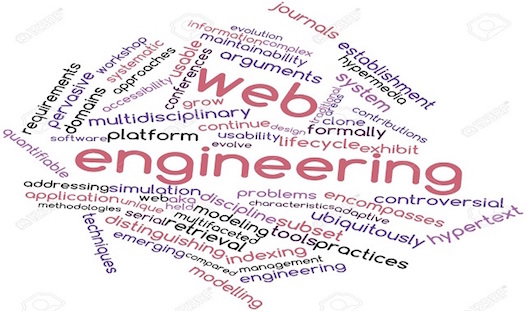

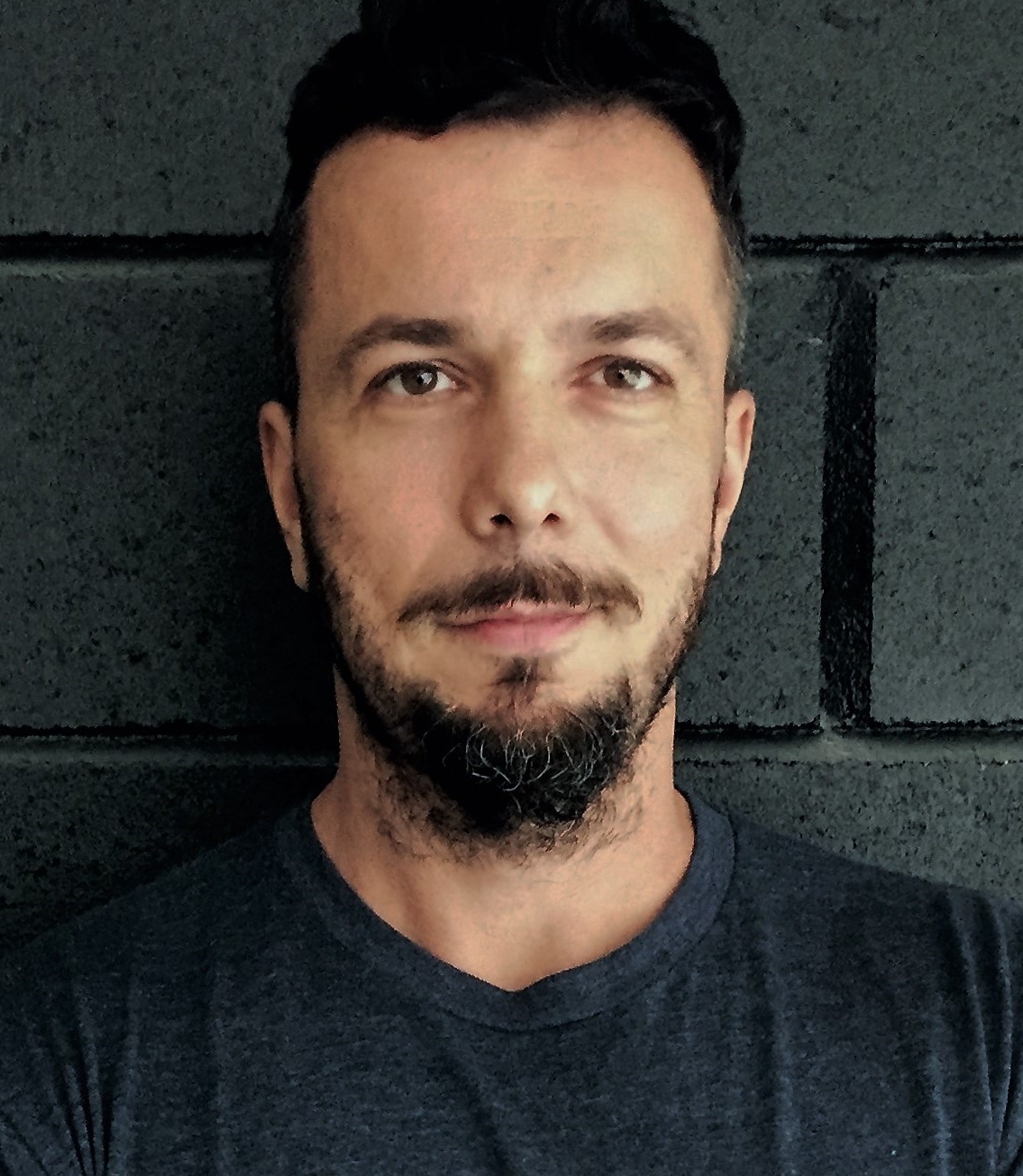




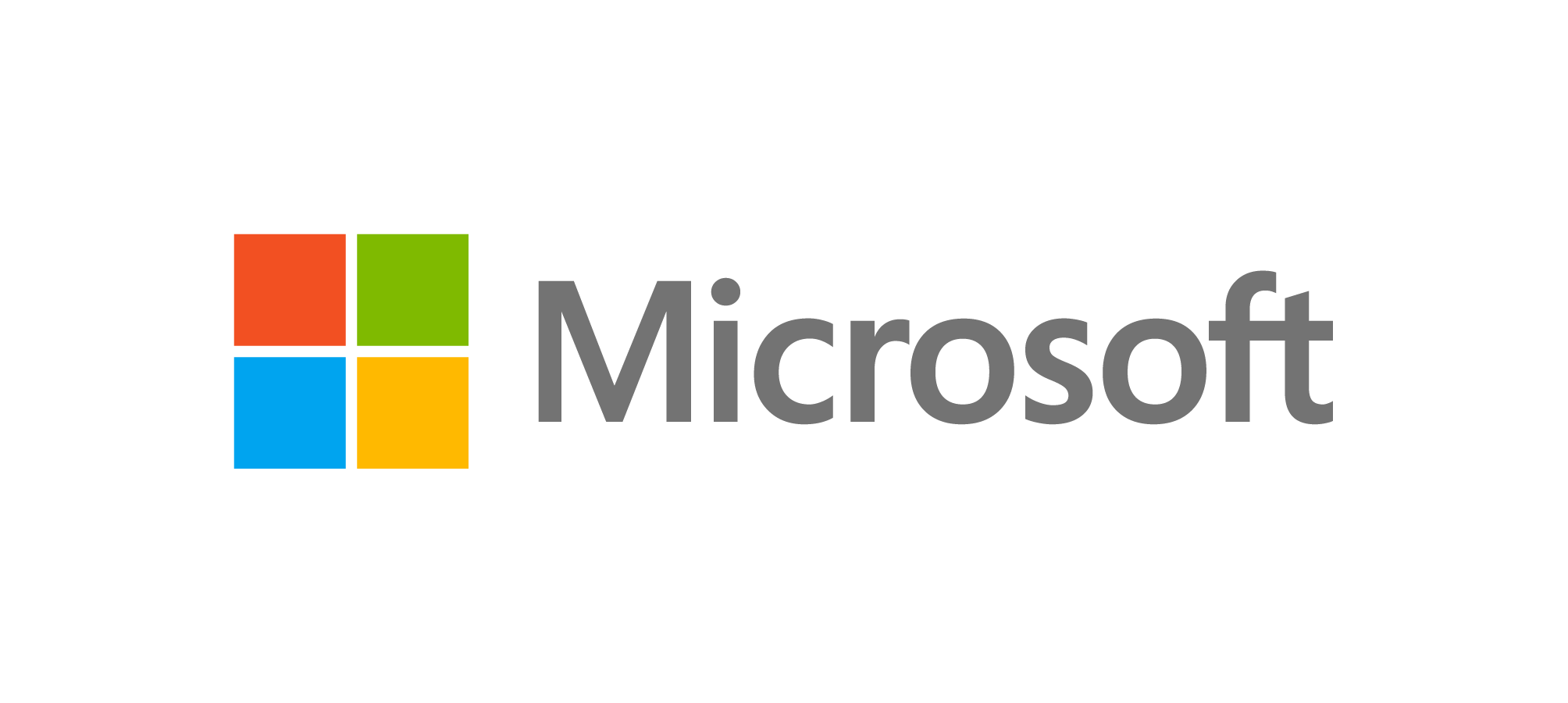
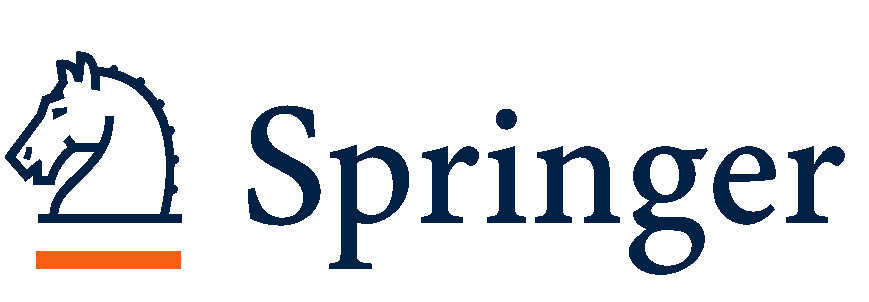


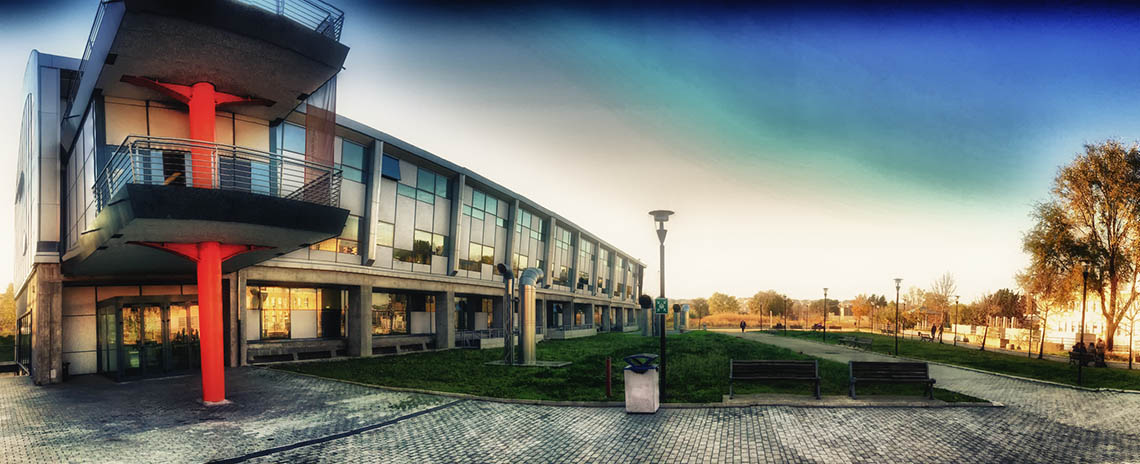

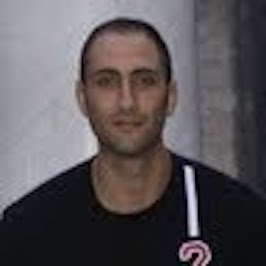
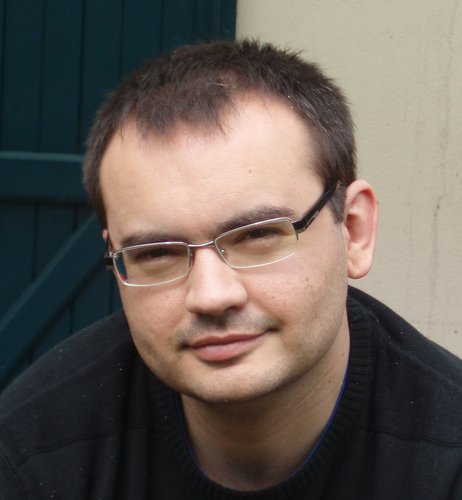
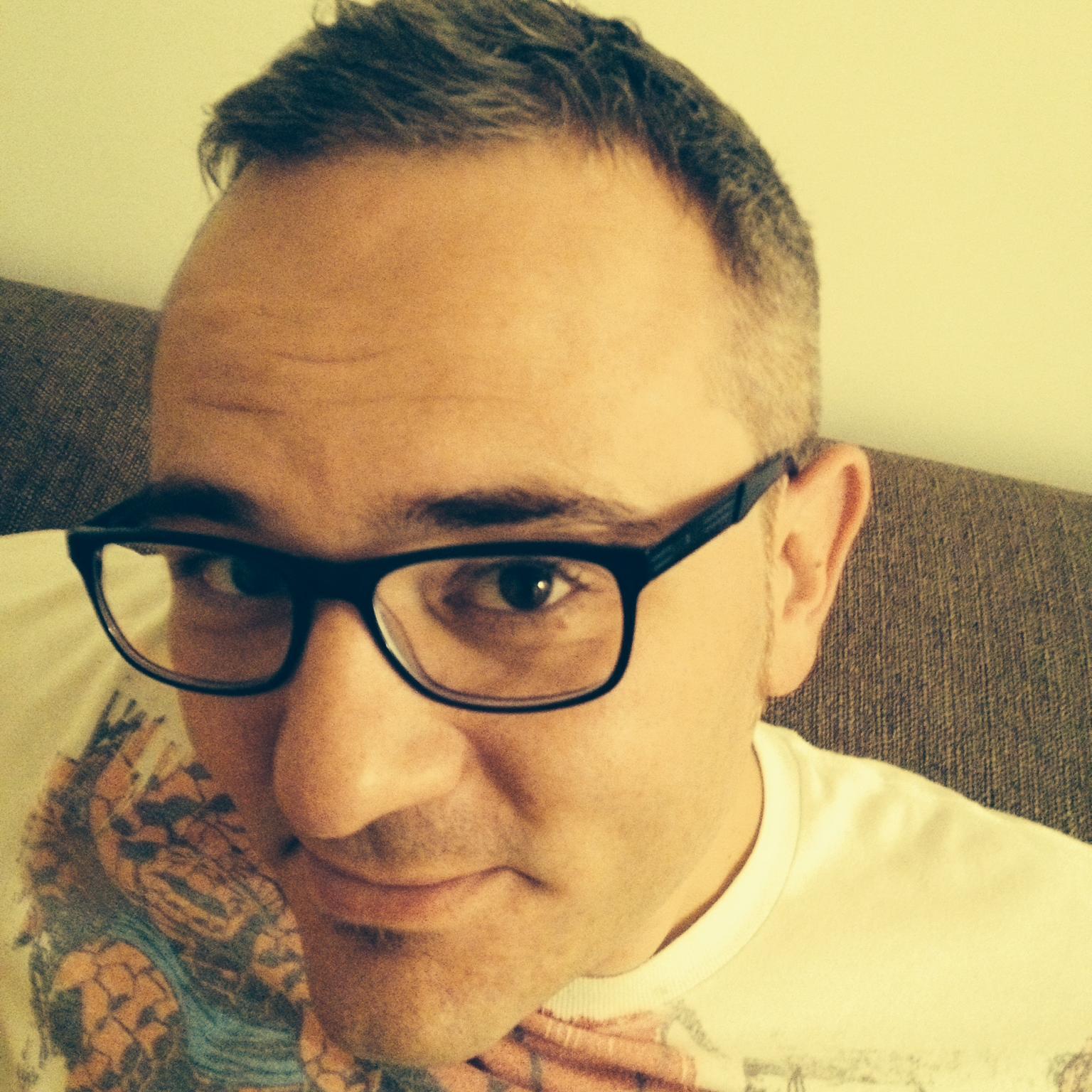
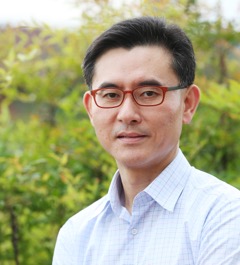
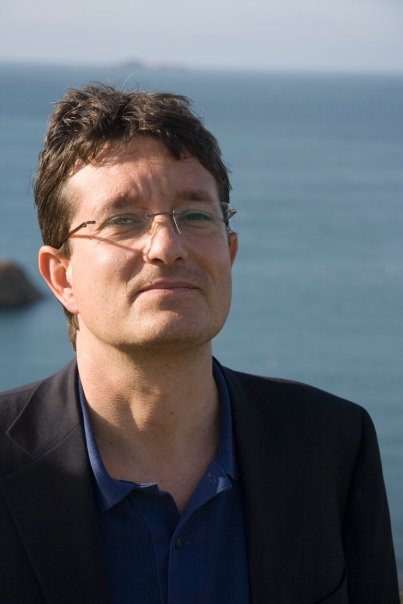
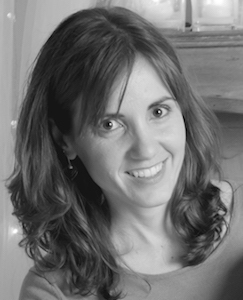
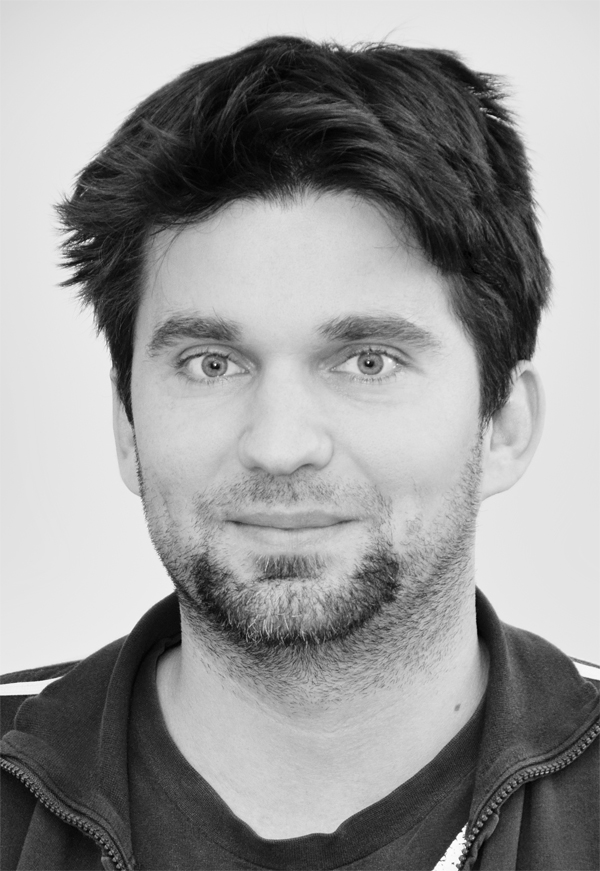

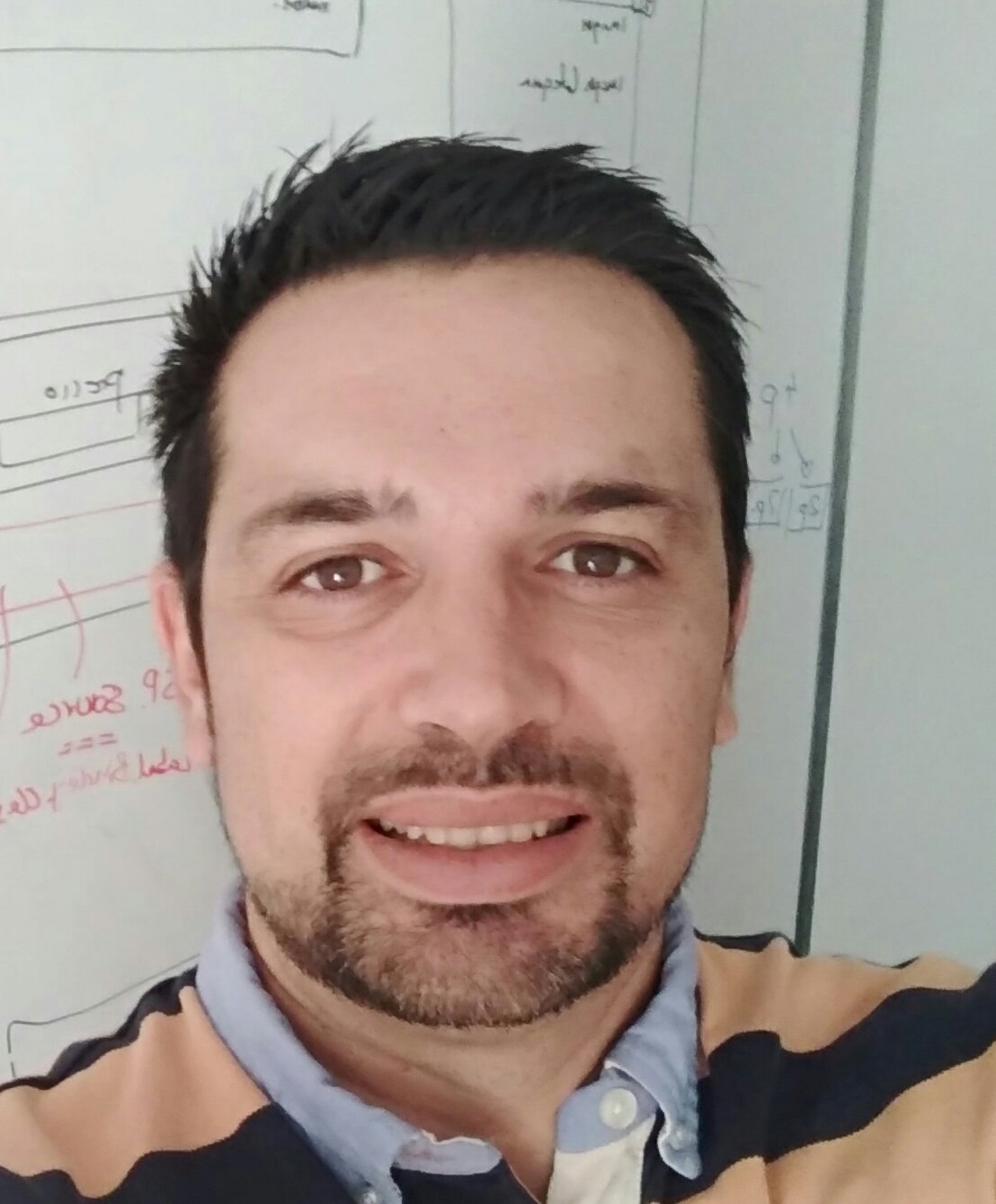

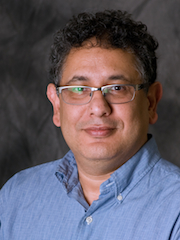
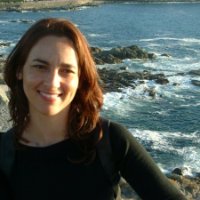

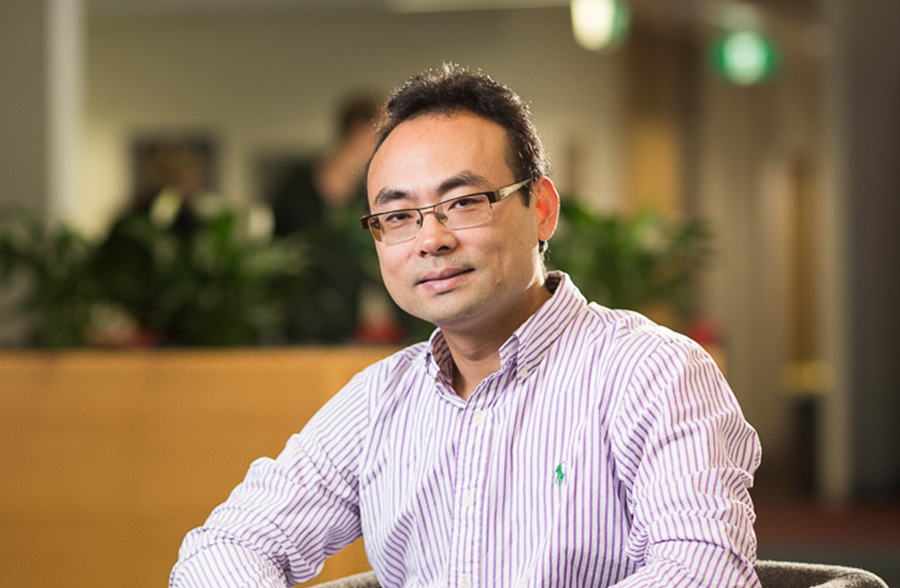
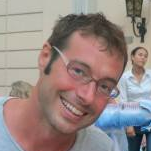
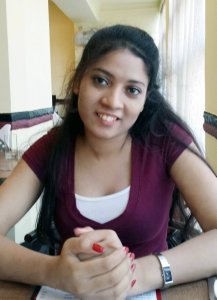
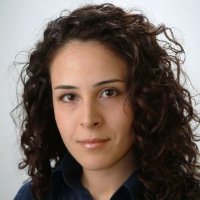

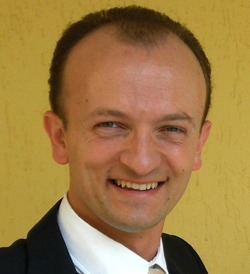
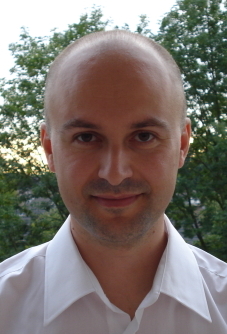
SOCIAL EVENTS
Welcome Reception
[18:00 - 20:00] - 5 June 2017Department of Engineering
Roma Tre University
Via Vito Volterra, 60
00146 Rome, Italy
Phone: +39 06 57333481
Email: ricerca.ingegneria@uniroma3.it
Roman promenade
[19:00 - 20:00] - 7 June 2017in the historical center with a private guided visit to the Roman Forum
Banquet
[20:00] - 7 June 2017Palazzo Rospigliosi
an historical palace on the top of Quirinal Hill
Via Ventiquattro Maggio, 43
00187 Rome, Italy
Phone: +39 06 47848064
Email: fernando.sereni@congressirospigliosi.it